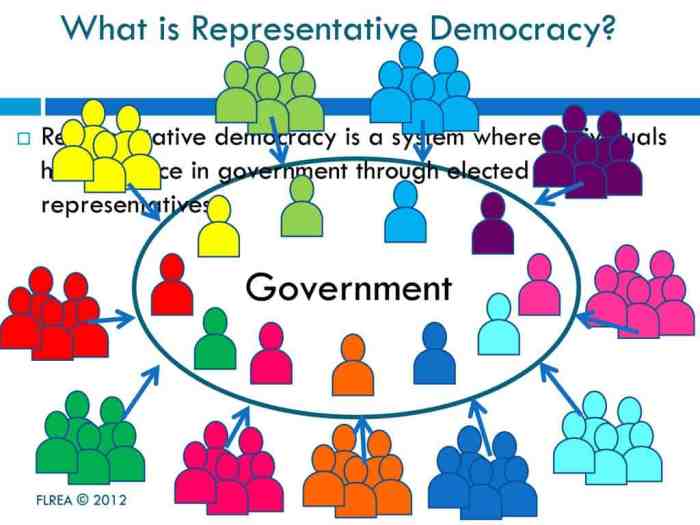How are Athenian direct democracy and US representative democracy similar? This question opens a captivating inquiry into the intriguing parallels between these two distinct political systems. Both systems share a foundation of citizen involvement, legislative assemblies, and a commitment to civic education, fostering a comparative analysis that sheds light on their respective strengths and historical significance.
Athenian democracy, with its direct citizen participation, stands as a pioneering model of popular sovereignty. In contrast, the US representative democracy embodies a system where elected officials act on behalf of the people. Despite these apparent differences, striking similarities emerge upon closer examination.
Citizen Participation and Involvement

Athenian democracy was characterized by the direct involvement of citizens in decision-making. Citizens participated in assemblies, where they could voice their opinions, propose laws, and vote on important matters. They also held public offices, which gave them the opportunity to influence policy and implement laws.
The concept of “isonomia” (equality before the law) was central to Athenian democracy. All citizens were considered equal under the law, regardless of their wealth or social status. This principle ensured that all citizens had a say in government and that the laws were applied fairly.
Assembly and Legislative Powers

The Assembly was the central legislative body in Athenian democracy. All male citizens over the age of 18 were eligible to participate in the Assembly. The Assembly met regularly to discuss and vote on laws, declare war, make peace, and conduct other important business.
The powers of the Assembly were similar to those of the US Congress. Both bodies have the authority to pass laws, declare war, and make peace. However, the Assembly was more directly democratic than the Congress. In the Assembly, all citizens had the right to speak and vote, while in the Congress, only elected representatives have this right.
Magistrates and Executive Functions

Magistrates were elected officials who carried out the laws and administered the government in Athenian democracy. There were many different types of magistrates, each with specific responsibilities. For example, there were magistrates responsible for finance, military affairs, and religious ceremonies.
The powers of magistrates were limited by the Assembly. Magistrates could not make laws or declare war. They were also subject to recall by the Assembly if they abused their power.
Courts and Judicial System

The Athenian court system was composed of a number of different courts. The most important court was the Court of the Areopagus, which was responsible for trying cases of murder and other serious crimes.
Citizens played an important role in the Athenian judicial system. They served as jurors in trials and had the power to decide the guilt or innocence of the accused. The Athenian judicial system was more democratic than the US judicial system, as all citizens had the right to serve as jurors.
Political Leadership and Influence: How Are Athenian Direct Democracy And Us Representative Democracy Similar
Political leaders played an important role in Athenian democracy. They could influence public opinion, propose laws, and hold public office. The most influential political leaders were those who had the ability to persuade the Assembly to support their policies.
The role of political leadership in Athenian democracy was similar to that in US representative democracy. In both systems, political leaders seek to gain influence and support by appealing to the voters.
Q&A
What is the most significant similarity between Athenian direct democracy and US representative democracy?
Both systems prioritize citizen participation in decision-making, albeit through different mechanisms.
How did Athenian citizens directly participate in governance?
Athenian citizens attended assemblies, voted on laws, and held public offices, embodying the concept of “isonomia” (equality before the law).
What is the role of civic education in both Athenian and US democracies?
Civic education plays a crucial role in fostering informed and engaged citizens, ensuring the vitality of democratic institutions.